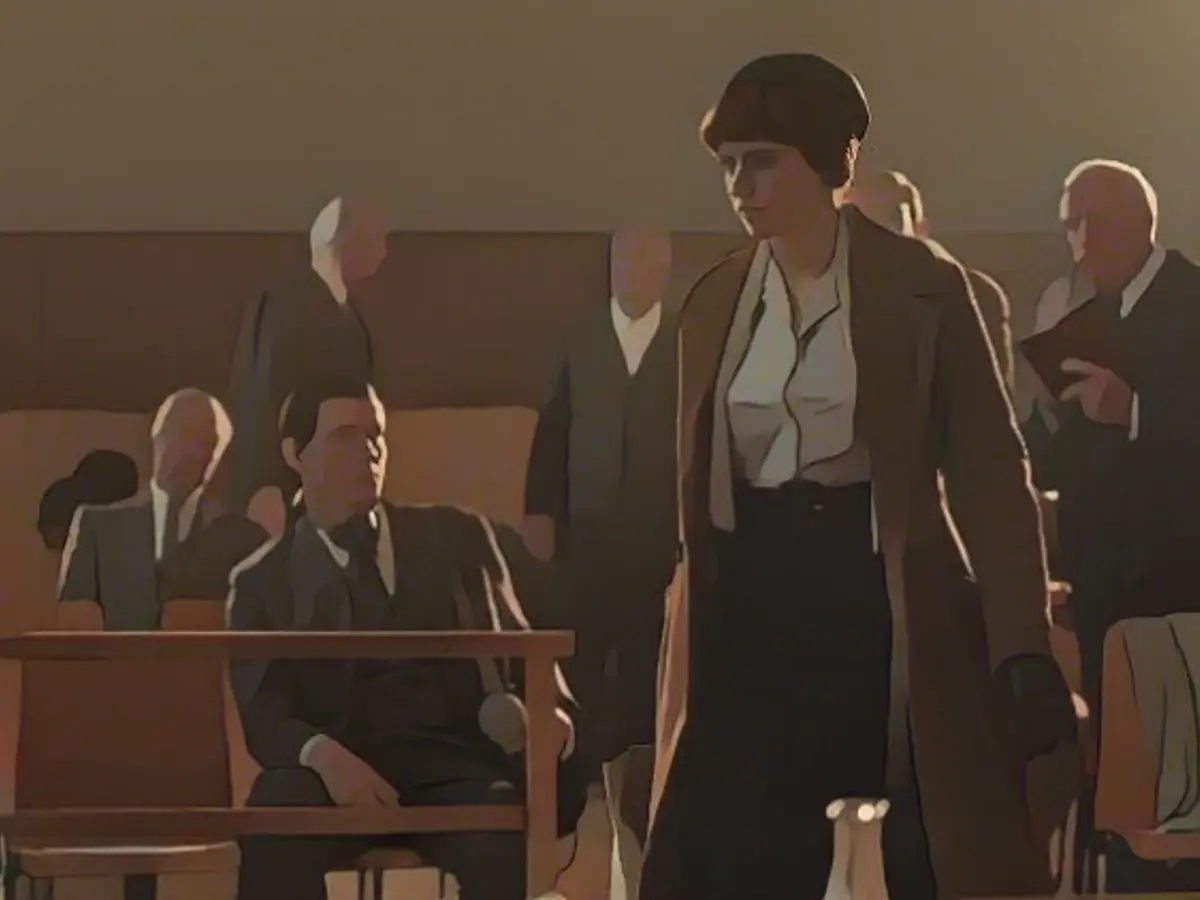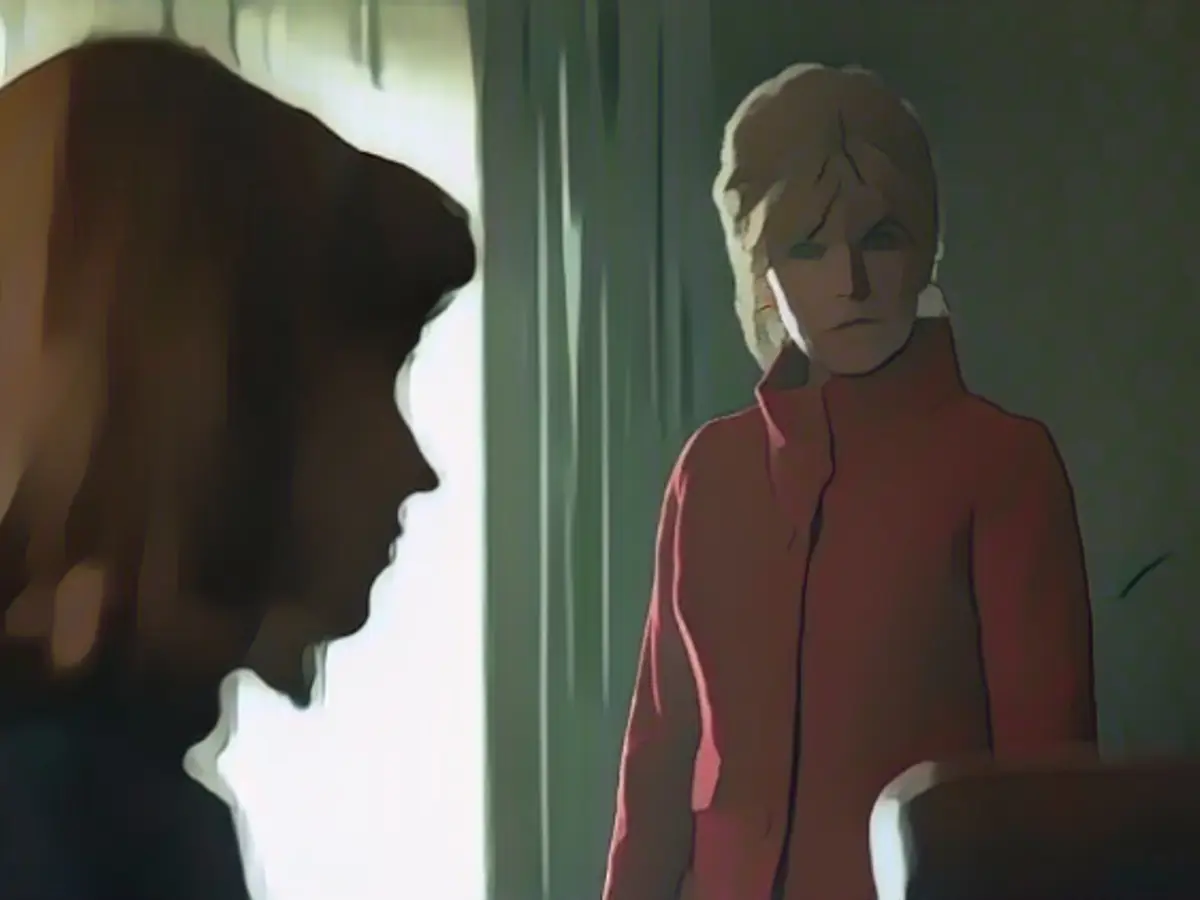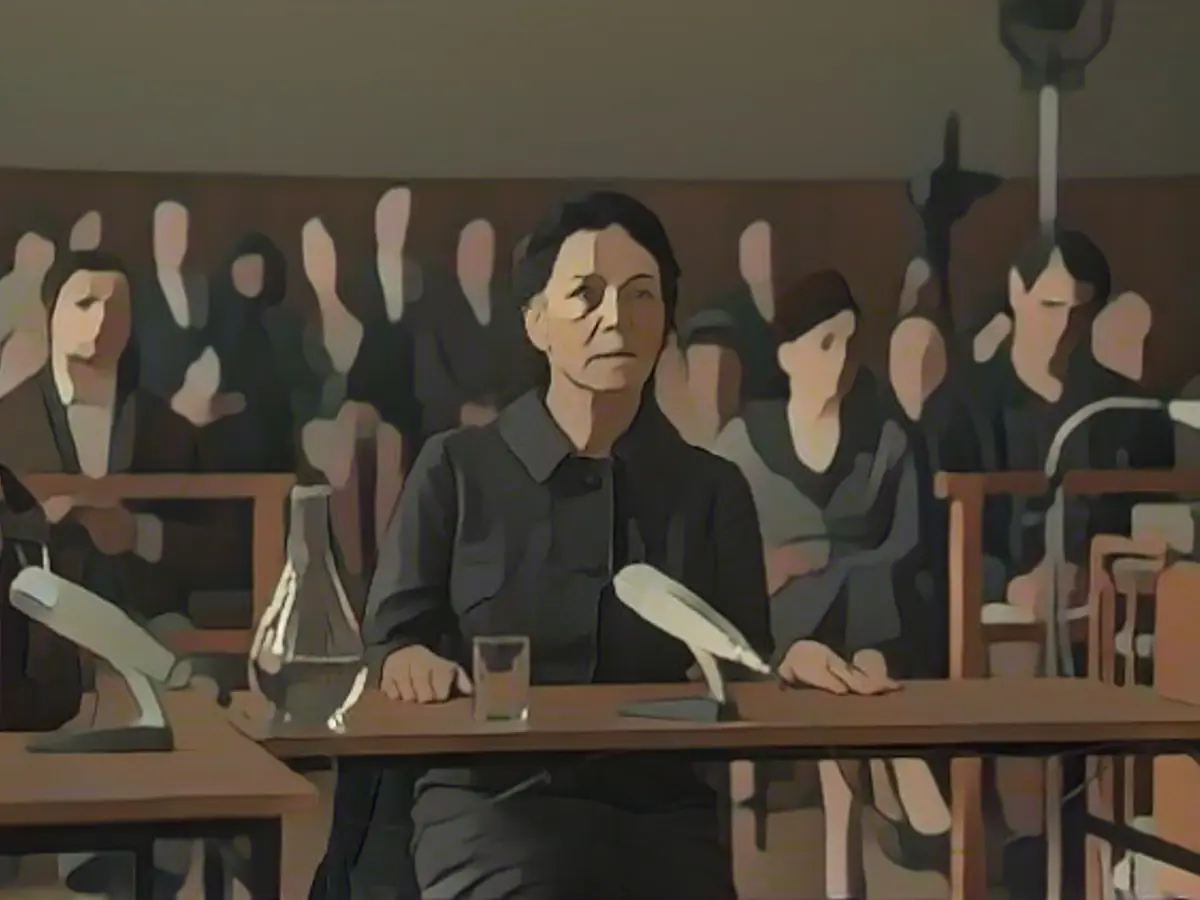The loud silence of the war generation
After "Ku'damm" and "Weissensee", Annette Hess has now rewritten her own novel into a series. "Deutsches Haus" deals with the Frankfurt Auschwitz trial and the silence that persisted until then. But it is also a story about love, guilt and emancipation.
Ever since the series "Ku'damm" and "Weissensee", the idea generator and author Annette Hess has been one of the most sought-after in her profession on the German series market. Ignoring her involvement in the less enjoyable series "Wir Kinder vom Bahnhof Zoo", Hess has repeatedly succeeded in telling human destinies against the backdrop of German history in a way that is suitable for the masses. This was also the case in her debut novel "Deutsches Haus", published in 2018, which has now been turned into a five-part mini-series for Disney+ under the direction of Isa Prahl and Randa Chahoud and with a large cast of stars.
The year is 1963 and the first Auschwitz trial is about to take place in Frankfurt am Main, where 22 former SS men are accused of being involved in the mass extermination at the German concentration camp, which they vehemently deny with outrageous claims. In the same town, the married couple Ludwig and Edith Bruhns (Hans-Jochen Wagner and Anke Engelke) run the restaurant "Deutsches Haus", which stands as a metaphor for the silence and suppression of the followers as well as the naivety and ignorance of the post-war generation.
The end of ignoring
Daughter Eva Bruhns (Katharina Stark) is about to get engaged to mail-order heir Jürgen Schoormann (Thomas Prenn) when she is unexpectedly called in as a Polish translator for the trial starting on December 20. It is only here that the young woman, who until then had lived a rather naive life, learns of the horrors and atrocities committed by the SS henchmen during the war. Meanwhile, for a long time she has no idea what all this has to do with herself and her family.

All sorts of private entanglements then surround the trial. On the one hand, there is Eva's emancipatory development, which makes her reluctant to let her fiancé tell her what to do and what not to do. Meanwhile, her older sister Annegret (Ricarda Seifried) is fighting on a completely different front as a pediatric nurse. On her ward, babies are repeatedly infected with life-threatening coli bacteria, and the reason for this is not found for a long time.
The (fictional) Jewish prosecutor David Miller (Aaron Altaras) struggles with himself and a sense of guilt that is probably alien to the defendants. Among them are Robert Mulka (Martin Horn) and Wilhelm Bogner (Heiner Lauterbach), whose private lives form another narrative thread that shows that hatred and rejection still play a role almost 20 years after the end of the war. The fate of the survivor Rachel Cohn (Iris Berben), who testifies, also stands for this and takes center stage for several moments.
A culture of remembrance in words
"Deutsches Haus" has its strongest moments in the testimonies of those who survived the extermination camp but can never get over what they suffered, saw and lost there. Only words, not images, are needed to understand the humiliation, suffering and horror of the camp in which a million Jews died. Giving them a minute's silence during a tour of the site in order to verify their statements is another highlight of the series.

And yet the good intention disappears again and again behind all too many private events. The storyline about Eva's sister Annegret, who keeps her knowledge bottled up and whose feelings are expressed elsewhere, may be symbolic of the failures of many people at the time. Nevertheless, it is questionable whether it was really needed. And as good as it is to point out that emancipation was still a foreign concept at the time, the story about Eva's fiancé and his father (Henry Hübchen), who is slipping into dementia and oblivion, also tends to tear you away.
Nevertheless, "Deutsches Haus" is yet another mass-market adaptation of a painful chapter of German history, which is just right in times like these, when anti-Semitism is once again sadly booming. However, the fact that fiction and reality are so closely intertwined in this difficult topic may not be everyone's cup of tea. Whether there will be a second season depends on the international success of the series on Disney+ anyway.
- Despite her engagement to Jürgen Schoormann, Eva Bruhns' role as a Polish translator in the Auschwitz trial exposes her to the horrors of the past, causing her to question her naivety and ignorance about National Socialism's atrocities, even as it unfolds in her hometown of Frankfurt am Main.
- To the surprise of many, Disney+ has adapted Annette Hess' book "Deutsches Haus" into a five-part mini-series, placing it in the context of the controversial 1963 Auschwitz trial, where former SS men are accused of war crimes, and showcasing the struggles of their families in post-war Germany.
- In the series, the fictional restaurant "Deutsches Haus" serves as a metaphor for the silence and suppression of the Nazi followers, while the processes of the trial reveal the shocking truth about the mass exterminations that occurred during the Holocaust, challenging the prevailing culture of ignorance and denial.
Source: www.ntv.de








